Sudan
Sudan’s military chief, General Abdel-Fattah Burhan, says commanders in the war-torn city of el-Fasher made the decision to withdraw in order to spare civilians from what he described as systematic destruction and killing at the hands of the Rapid Support Forces (RSF).
“Everyone is following what happened in el-Fasher. Certainly, the leadership there, including the security committee, estimated that they should leave the city due to the systematic destruction and killing of civilians it was subjected to,” Burhan said in a televised speech.
The remarks came as activists and humanitarian groups reported that RSF fighters seized a major army base — the final government stronghold in the western Darfur region — marking a significant turning point in a conflict that has devastated Sudan since April 2023.
Burhan vowed retaliation, accusing the paramilitary of committing crimes not only in el-Fasher, but across the country.
“We are determined to take revenge for all our martyrs… and for what happened to our people in el-Fasher, the crimes that are being committed now and that were committed before in all parts of Sudan in the full view and hearing of the world,” he said.
A City Under Siege
El-Fasher, the provincial capital of North Darfur, has been surrounded by RSF forces for more than a year. Aid groups estimate more than 250,000 people remain trapped inside the city — nearly half of them children — with limited access to food, medical care, and safe passage.
Dozens of civilians were reportedly killed in the latest fighting, according to volunteer medical networks. Witnesses say homes, markets, and displacement camps have come under shelling.
For many Sudanese, the fall of el-Fasher raises fears of further fragmentation — more than a decade after the creation of South Sudan.
Conflicting Images on the Ground
Footage shared on social media shows RSF fighters celebrating in and around the captured army compound. In one video, the group’s deputy commander, Abdulrahim Dagalo, can be heard urging fighters not to loot or attack civilians.
However, other clips appear to show the opposite: armed men shooting at fleeing residents, beating detainees, and shouting racially-charged slurs commonly used in Darfur to target non-Arab African communities.
The RSF has repeatedly denied systematic abuses, but international monitors accuse the group of carrying out ethnically motivated violence since the early 2000s, echoing atrocities that led to global outrage during the height of the Darfur crisis.
A Tactical Withdrawal
The Sudanese military has not publicly confirmed the loss of its base, but army officials — speaking anonymously — acknowledged troops had retreated to secondary defensive lines under heavy shelling.
Military analysts say the withdrawal signals a tactical setback, but also highlights the strained resources of Sudan’s formal armed forces. Many commanders have complained privately of limited ammunition, dwindling supplies, and slow international support.
Origins of a Nationwide War
The conflict erupted in April 2023 when long-simmering tensions between the Sudanese Armed Forces and the RSF exploded into open warfare in the capital, Khartoum. What began as a power struggle has since spiraled into one of the world’s worst humanitarian emergencies, pushing millions toward famine and displacing more than 8 million people.
The United Nations warns that escalating violence in Darfur risks reigniting genocide-era patterns, as entire communities are targeted based on ethnicity.
International Silence
Burhan, in his speech, accused the international community of indifference:
“…crimes… committed in full view and hearing of the world.”
Despite repeated appeals from aid agencies, diplomatic pressure remains limited, and several cease-fire negotiations have collapsed.
A Country at Breaking Point
As el-Fasher’s residents brace for further fighting, humanitarian access is nearly impossible. Aid workers say warehouse looting and roadblocks have left families boiling leaves and animal feed to survive.
With Sudan’s economy in free-fall, its government operating from temporary offices on the Red Sea coast, and rival armies entrenched, analysts warn the country could fracture further — creating new de facto borders and deepening ethnic divides.
For Burhan, withdrawal may have saved lives in the short term. But for civilians trapped inside el-Fasher, the battle for survival is only beginning.




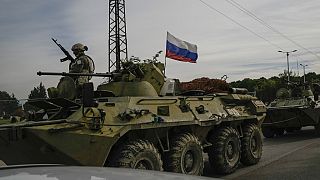
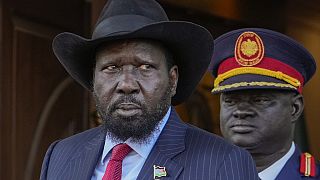
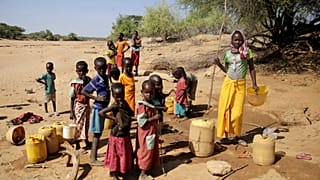

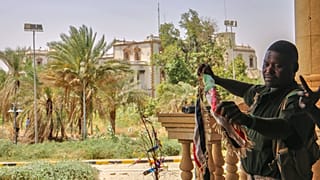
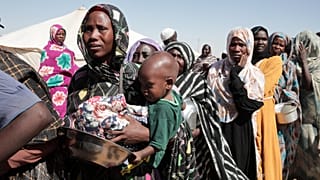
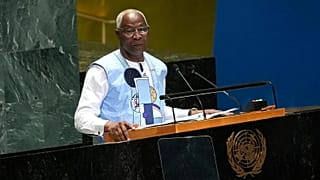


01:16
Sudanese military reportedly weighing up new truce proposal
01:37
Sudan: Business steadily returns to Khartoum market
Go to video
Sierra Leone marks first National Day of Remembrance in honour of victims of civil war
01:51
Sudan's war has left the country's economy shattered
02:01
UN says doctors in Sudan are doing all they can to provide support to people
01:25
As Sudan marks 1,000 days of conflict, civilians continue to suffer